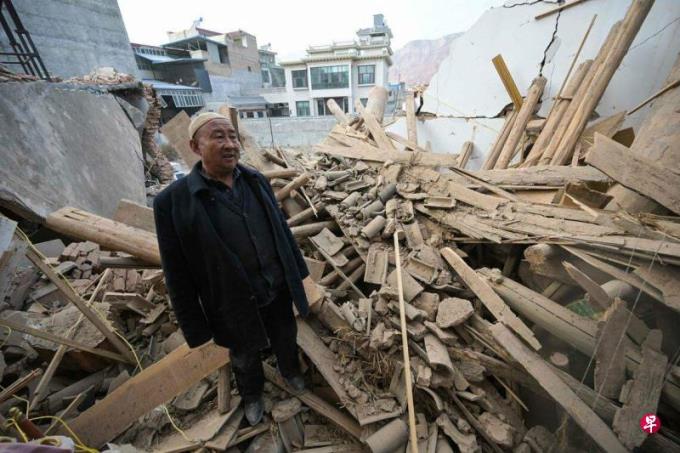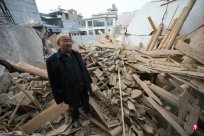
The earthquake in Jishi Mountain, Gansu, China has continued, and secondary disasters such as Sandong caused by strong earthquakes have led to further increase in the number of victims, and the severe cold weather has caused residents who are giving away to face new survival problems.
Linton Prefecture, Lintong State County, Gansu and Qinghai Province , Class 6.2 earthquakes occurred late on Monday (December 18).As of 4 pm on Wednesday (20th), the earthquake had killed 134 people and 968 people were injured.
According to the statistics of the China Earthquake Network, as of 8 am on Wednesday, there are more than 423 aftershocks recorded in the earthquake area, including two aftershocks above 4 or more than eight or more than eight more than eight.
The earthquake also triggered the land sand in the citizens of Haidong, Qinghai Province and the county in Zhongchuan Township, Qinghai Province. The private houses of Zhongjintian Village and Caotan Village were surrounded by silt, and many people were killed and lost contact.
Comprehensive CCTV News and Haidong Daily reported that shortly after the earthquake, the thick mud with 3 meters high in the waves rolled into Jintian Village and Caotan Village. Many houses and livestock houses were buried.A highway and several houses and open spaces on the entrance of Jinshang Village are covered by mud.
Qi Fengong, a cadre in Zhongchuan, Minhe County, said that when he arrived at the scene about 10 minutes after the earthquake, the mud had already turned out."I feel unbelievable, where did so many soil come from? We can't think of it."
After the incident, the Qinghai Fire Rescue Corps organized rescue overnight.Due to the cold weather, the sand rushing is in a semi -frozen state. Rescuers put a life -saving passage in the sand in the sand with stones and firewood, while using the excavator to clean the mud.After more than 40 hours of rescue, a total of eight victims were found, and 12 people still lost contact.
CCTV quoted Han Yanyan, a senior engineer of the China Earthquake Network Center, said that after many large earthquakes occur, due to the vibration of the crust, the water -containing sandy soil in the underground will be strongly liquefied., Form the phenomenon of sand.However, there are still no resurrection of Sandy and the subsequent alternatives.
On the other hand, the Gansu Provincial Earthquake Rescue Headquarters held a press conference on Wednesday that the local rescue operation has basically ended at 3 pm on Tuesday, and then focuses on the treatment of the wounded and the lives of the victims.
More than 150,000 houses were damaged during the earthquake A large number of victims are homeless.Gansu officially disclosed that more than 87,000 people have been temporarily suspended in the local area, and more than 128,000 tents, quilts, folding beds and other emergency disaster relief materials are urgently allocated to ensure the basic life of the victims.
The Qishishan County County is 2,300 meters above sea level. In the past three years, the average temperature in late December was minus 7.6 degrees Celsius.On Tuesday evening, the temperature of Jishi Mountain fell to minus 16 degrees.The upcoming new round of cold air this weekend will lead to further decline in the temperature of the earthquake area.
The China Meteorological Administration prompts that too low temperature will increase the risks faced by trapped or just rescued.The lack of cold and frostbite in the lack of cold materials. In the plateau, colds can cause lung -to -live altaric diseases such as emphysema.Low -temperature weather may also cause the temperature of the core area of the human body. If it is not taken in time to keep warm, it may cause death.
At present, the damaged roads in Gansu and Qinghai have been seized, and disaster relief personnel, materials, and vehicles can reach the disaster area smoothly.The main network circuits in the earthquake -stricken area of Jishishan County have been restored to power supply, and all users in the Qinghai Earthquake District have also resumed power supply.




